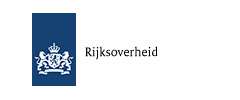EWA Uganda: Focus on low income small-holder farms
"Empower Women - Benefit (for) All (EWA)": Focus on low income small-holder farms
01.04.2014 | WICF Project
| Countries: | Uganda |
| Donors: | Ministry of Foreign Affairs of the Netherlands |
| Duration: | 01/2012 - 12/2015 |

WECF support its EWA partners in Uganda in developing “conservation” agriculture, avoiding further deforestation by improving the soil-quality of existing agricultural lands and increasing women farmers’ positions.
Uganda remains among the poorest countries in the world. 88 percent of Ugandans live in rural areas, where land and water resources are central to their livelihood. Households engaged in crop farming remain the largest group of the poverty-stricken population, accounting for about 38 percent of the households below the poverty line. On average, rural households derive nearly three-quarters of their income from crop farming. Smallholders dominate the agricultural sector with over 90 percent of crops being produced on farms averaging less than two hectares. With 3.57 percent population growth annually, Uganda has one of the highest rates of population increase in the world. In 2012, the estimated population was 35,9 million people.
Appropriate Technologies Uganda (Ltd.): our partner in Uganda
Since 2001 AT Uganda offers a wide range of agricultural extension and agro-business development services in northern and eastern Uganda and has vast experiences in research and technology development.
Low-income smallholder farmers- improving agricultural technics and income; strengthening capacity
In the EWA project, low-income smallholder farmers in Kapchorwa and Kween District, where land degradation has reached alarming levels, are the target group and location identified, totalling to 2300 beneficiaries, with a focus on women. One strategy of this project will be to improve the capacity of farmers (especially women) and their advisers to reassess practices and demonstrate sustainable alternatives. Much of the farmland in the proposed project area was cleared of forest and savannah vegetation in response to the needs for increased food production over the last 30 years. Subsequently, the accumulated soil organic matter was exposed, leading to rapid mineralization and leaching as a result of heavy seasonal rains. Repetitive ploughing has also not helped to conserve the soils.
Farmer groups
One of the key activities of the project will be to develop and implement demonstration programmes on organic conservation farming, conduct training of trainers on organic conservation agriculture, and train groups on marketing and farming as a business. In the two target districts, 100 groups of farmer groups participating in the project and more than 90 demonstration fields on organic conservation agriculture will be established. The farmers will be trained on non-chemical weed and pest control and on how to make compost and crop rotation. They will also be sensibilized on gender aspects, while partner AT will promote women’s participation in income -generating activities. Farmer groups will be trained and facilitated to set up Village Saving and Loan Associations (SFLA).
Publications
Economical and social empowerment of remote communities in Uganda, (2018): Publication on the impact of integrating conservation agriculture, gender, business and accessibility to financial resources on remote communities in rural Uganda
Related News
Case studies from the EWA project in Uganda
In Uganda, WECF works with local partner organisations to introduce gender sensitivity trainings and conservation agriculture. Two participants in the trainings share their views
29.02.2016
Empower Women - benefit All Uganda: Conservation Agriculture increases yield of the farmers
Master thesis of Afke Jager from Wageningen University shows that use of Conservation Agriculture (CA) leads to higher yield of 30% on average
07.01.2016
WECF partner Gertrude Kabusimbi Kenyangi Wins Wangari Maathai Prize!
Collaborative Partnership on Forests honours Gertrude Kabusimbi Kenyangi
14.09.2015
EWA Uganda: lessons on farming as a business
“I did not know borrowing money affects the profits”
14.10.2014 | WICF
EWA Uganda: "Cooking is not work?"
Gender mainstreaming for 22 community based organisations. A closer look at WECF’s partner AT Uganda
02.10.2014 | WICF
EWA Uganda: Local community and women's group leaders adopting Green Technologies
ARUWE and WECF joined hands by introducing biogas plants, solar dryers, rain water harvesting tanks and composting baskets
08.08.2014 | WECF






































